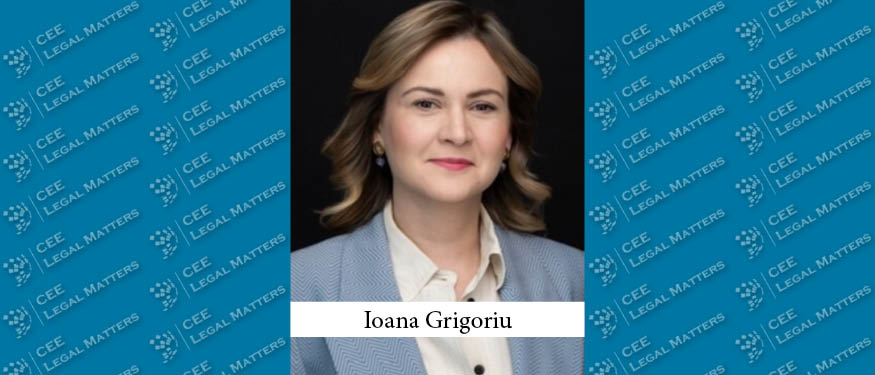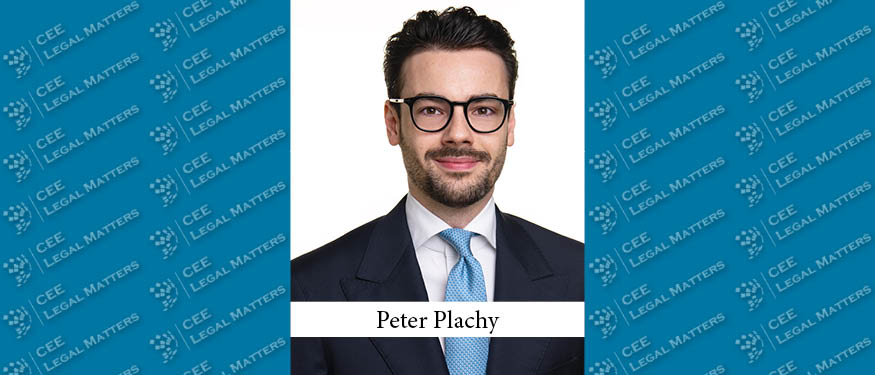In The Corner Office, we ask Managing Partners at law firms across Central and Eastern Europe about their backgrounds, strategies, and responsibilities. While in the legal field maintaining client relationships is vital, there are occasions when law firms must end engagements. To explore some of the reasons that might lead to this, we asked: After accepting mandates, what have been the main reasons for which you ended up having to drop clients?
Kostadin Sirleshtov, Managing Partner, CMS Sofia: Sanctions are the primary reason why we had to drop existing clients. Especially since February 2022, this has been a complex and very important matter. Pre-merger consultations are the second reason for dropping existing clients. Not so long ago, CMS completed the largest three-law-firms merger in the UK’s legal history (the merger between CMS Cameron McKenna, Nabarro, and Olswang) and, as a result, we had to drop the largest of our CMS Sofia existing clients at the time – it just so happened that, otherwise, we would have CMS acting for both parties in a complex litigation in London. Seldom, we are forced to terminate existing client relationships where payments are either never coming or are consistently delayed. We normally show understanding to clients who are late with their fees, but following the terms of the engagement is an important element of every client relationship. In extreme cases, we are forced to terminate existing relationships in cases where our gross margin does not make any commercial sense or is negative as a result of various factors.
Nenad Cvjeticanin, Managing Partner, Cvjeticanin & Partners: One common issue is a misalignment of expectations. Despite our best efforts to communicate clearly and set realistic goals at the outset, sometimes clients have unreasonable expectations or demand outcomes that are not feasible within legal constraints. When it becomes apparent that we cannot meet these expectations, despite our efforts to manage them, it may be necessary to part ways.
Another recurring challenge is non-compliance or refusal to adhere to legal advice. Our role as legal advisors is to provide sound guidance based on our expertise and knowledge of the law. However, if a client consistently disregards our advice, engages in unethical practices, or refuses to comply with legal requirements, it compromises our ability to represent them effectively and ethically. In such cases, we have no choice but to terminate the relationship to protect the integrity of our firm and uphold legal standards.
Additionally, financial issues can strain the client-lawyer relationship. Despite our best efforts to establish clear fee arrangements and communicate transparently about costs, some clients may struggle to fulfill their financial obligations. This can create tension and resentment, particularly if the client disputes the fees or refuses to pay for services rendered. While we strive to work with clients to find mutually acceptable solutions, persistent non-payment or disputes over fees may ultimately lead to the termination of the relationship.
Bernhard Hager, Managing Partner, Eversheds Sutherland Slovakia: Dropping clients after onboarding is a rare moment in our professional life. When it happened, it was for ethical reasons or because of a different understanding of our agreed scope of work and remuneration. As to ethical reasons, we stopped working for a client because the client was not willing to discuss our concerns regarding AML, tax evasion, or bribery. We have only experienced such discussions with a few, rather small clients. Other issues are discussions about the scope of work and caps. When clients try to extend the scope without increasing the cap, this might lead to the termination of our legal work. As mentioned in the beginning, it was a rather rare event – in almost all cases we settled such issues on good terms.
Ivana Ruzicic, Managing Partner, PR Legal: Although we conduct a thorough initial vetting process, instances where we have had to part ways with clients typically stem from a fundamental misalignment of values, expectations, or communication styles.
The legal profession thrives on a deeply personal and trusting relationship between attorney and client, necessitating a certain level of compatibility in sensibilities. When this synergy is lacking, it becomes evident that the representation or collaboration with such clients is unsustainable.
We pride ourselves on cultivating close relationships with our clients, built on trust and mutual respect. However, in rare instances where trust is compromised or absent, we do not hesitate to terminate the relationship. Over our firm’s history, such occurrences have been minimal, underscoring our commitment to maintaining a high standard of client satisfaction and ethical conduct.
Timur Bondaryev, Managing Partner, Arzinger: While onboarding the client, the firm has various angles to consider, all of which are really crucial. There is a regulatory angle, which has become much more serious and important recently following the Russian invasion of Ukraine. Apart from the usual conflict check, KYC & compliance prescriptions, a heavily extended sanctions network has largely contributed to the onboarding routine to ensure that the potential matter doesn’t create sanctions complications for the persons involved. While mentioning conflict check, it should be specifically emphasized, that not only actual but also potential conflicts are being carefully considered, while evaluating the case. An important premise for cooperation is the profitability of the client/project, which should be ensured all along the lifecycle of the project. Finally, the reputational angle has always been quite an important one in the onboarding process and its “weight” in the overall onboarding process has become increasingly serious in the course of the last years. Even if the client/matter looks very fine from a regulatory, conflict check standpoint and is very financially viable, it may be rejected for reputational reasons. In practical terms, for instance, the Russian business of a potential client can trigger rejection or dropping the client.
Should some of these premises/angles change after the client is onboarded, we can initiate the “dissolution of our relationship,” – respective covenants are part of our engagement letter. For instance, when we find out, that despite the public statements of the client about its intention to leave Russia, i.e., seize cooperation with the defense sector of the latter, the client keeps expanding business in the country, we can drop the matter.
Pavel Dejl, Managing Partner, Kocian Solc Balastik: As our founder and former IBA president Martin Solc once said: lawyers are known and valued not only for the work they do but also for work they do not do. To my knowledge, we have ended our work for a long-standing client only twice in the whole history of our law firm, with the second case being just immediately following Russia’s invasion of Ukraine. In response to such unprecedented aggression, and having in mind our own country’s terrible experience from 1968, we took the unanimous decision – even before any official sanctions had been approved – to terminate our relationship with a long-established client (a Czech entity) who was affiliated with the Russian state, recognizing the unacceptable risk for us of its potential financing of the conflict and Russian invasion. These decisions were guided by our commitment to ethical considerations and global responsibility, and emphasize the importance of lawyers demonstrating principled conduct in their professional engagements.
Pal Jalsovszky, Managing Partner, Jalsovszky: Luckily, such circumstances occur rarely in our practice. But they do happen sometimes. Each event is different though so it is difficult to find patterns among them. In the last couple of years, we have already terminated mandates with clients due to the non-settlement of our previous invoices. We also stopped working for a client when we received an unethical request from their side. But it also happened that we found ourselves in a conflict situation after having started to work for a client (and we found ourselves advising on a dispute where the counterparty was another client of ours). In all such cases, termination is a delicate issue. We endeavor to maintain a good business relationship with our ex-clients and, if reasonable, suggest another law firm replacing us.
Janos Rausch, Managing Partner, Ban, S. Szabo, Rausch & Partners: It would be ideal if we could state that our law firm can pride itself on never having to sever ties with any client. It is extremely rare that we must let a client go, because our professional relationship with our clients, is built on the solid foundation of mutual respect, clear communication, and often shared values. We conduct thorough initial consultations to ensure alignment in goals and expectations, setting the stage for a successful attorney-client relationship. But beyond the initial vetting, what truly defines a “good” client, and how both parties can work together to build a harmonious and effective partnership? We are looking for clients who do not withhold information, recognizing that transparency is key to allowing their legal team to provide the best advice. They ideally understand the legal process, respect the expertise of their lawyers, and have realistic expectations about outcomes. Obviously, it also helps if the client pays the bills.
This article was originally published in Issue 11.3 of the CEE Legal Matters Magazine. If you would like to receive a hard copy of the magazine, you can subscribe here.
















